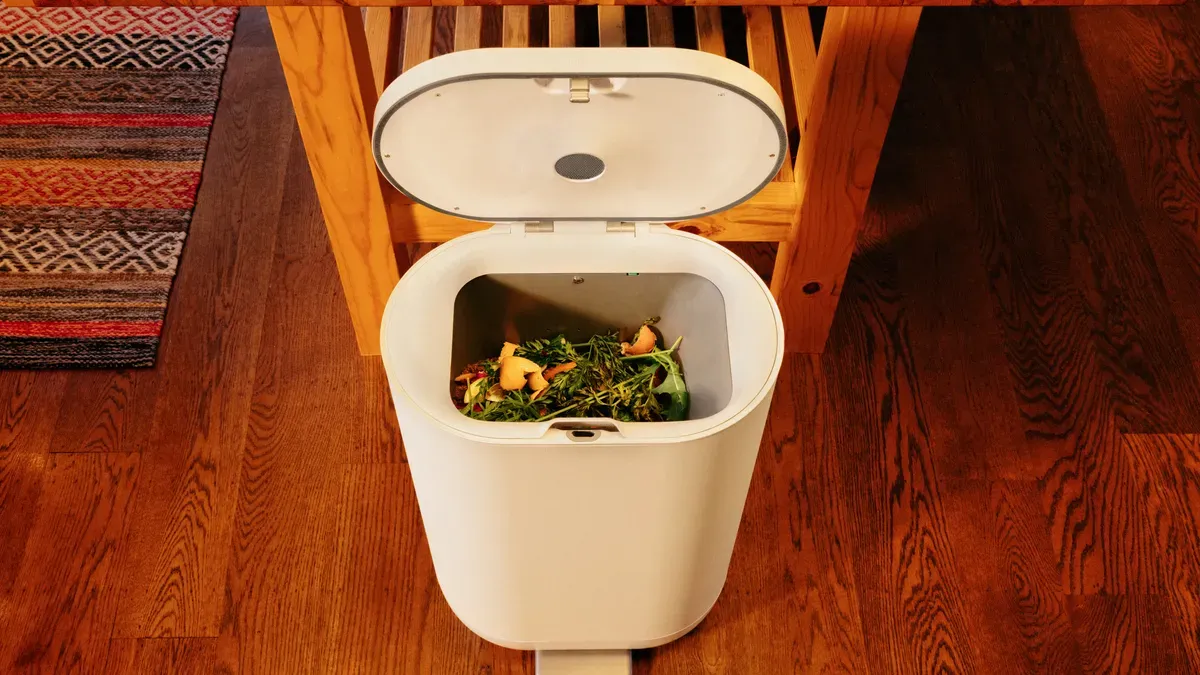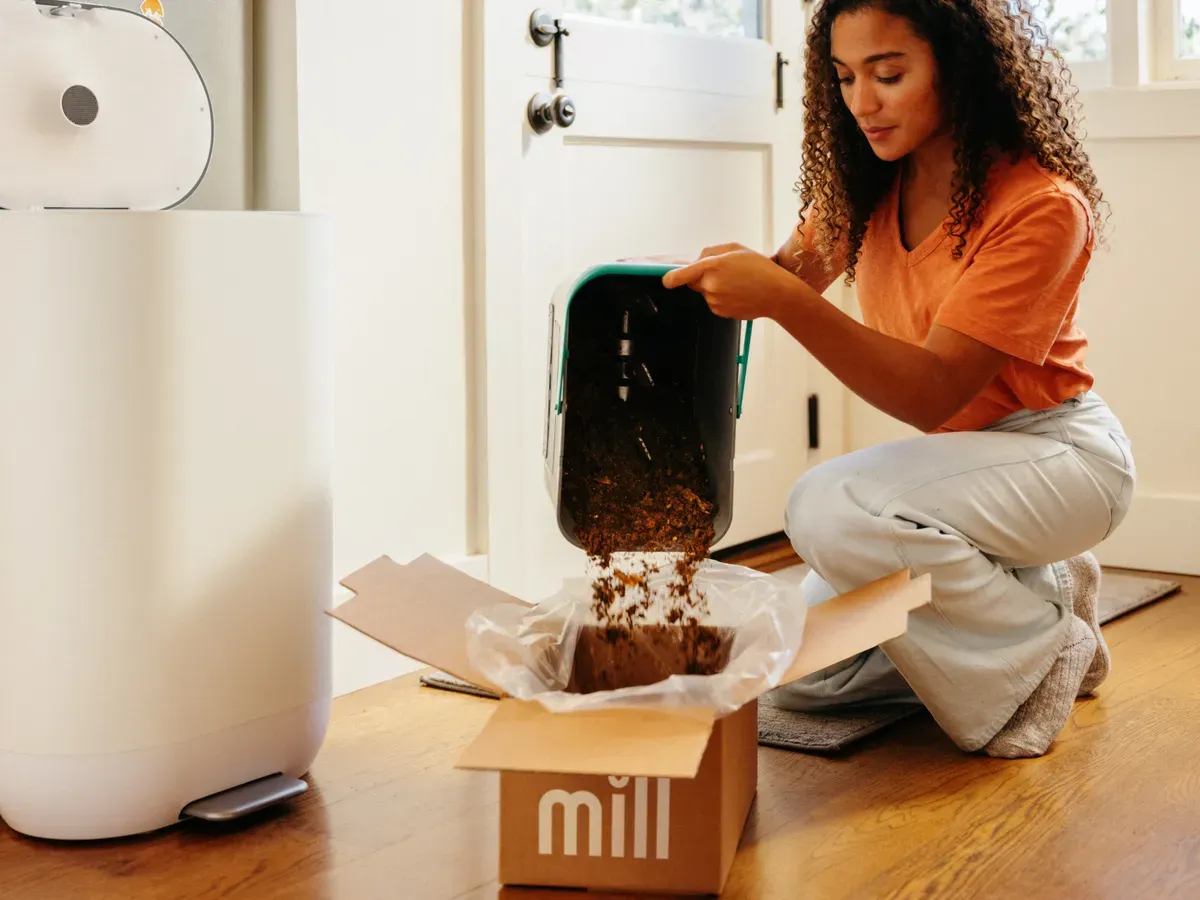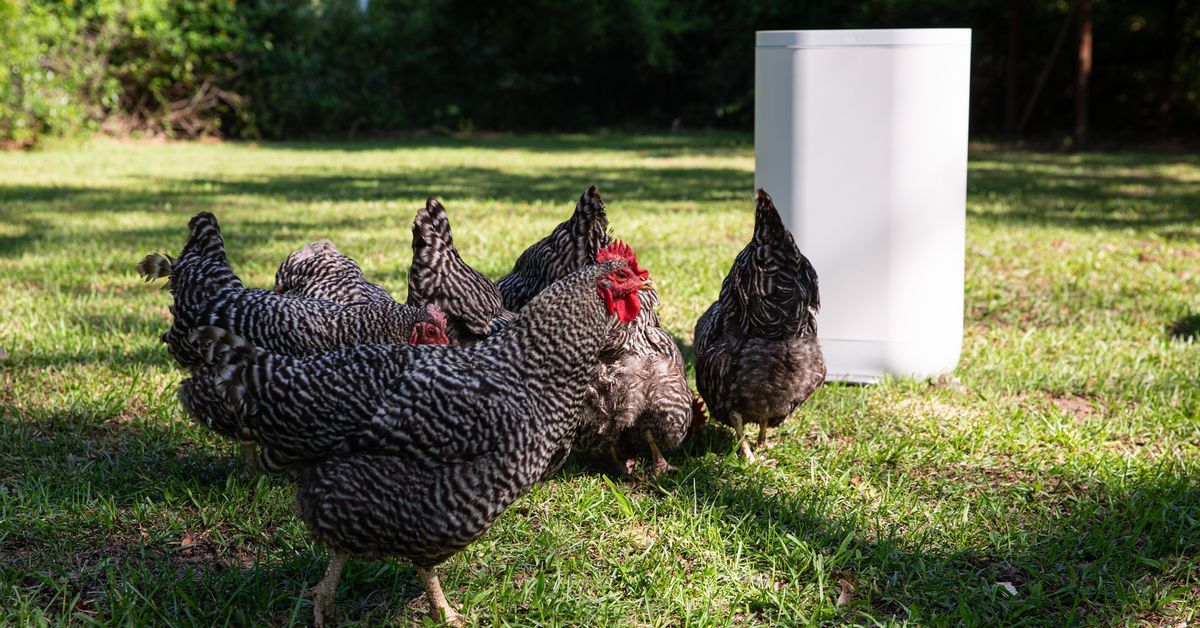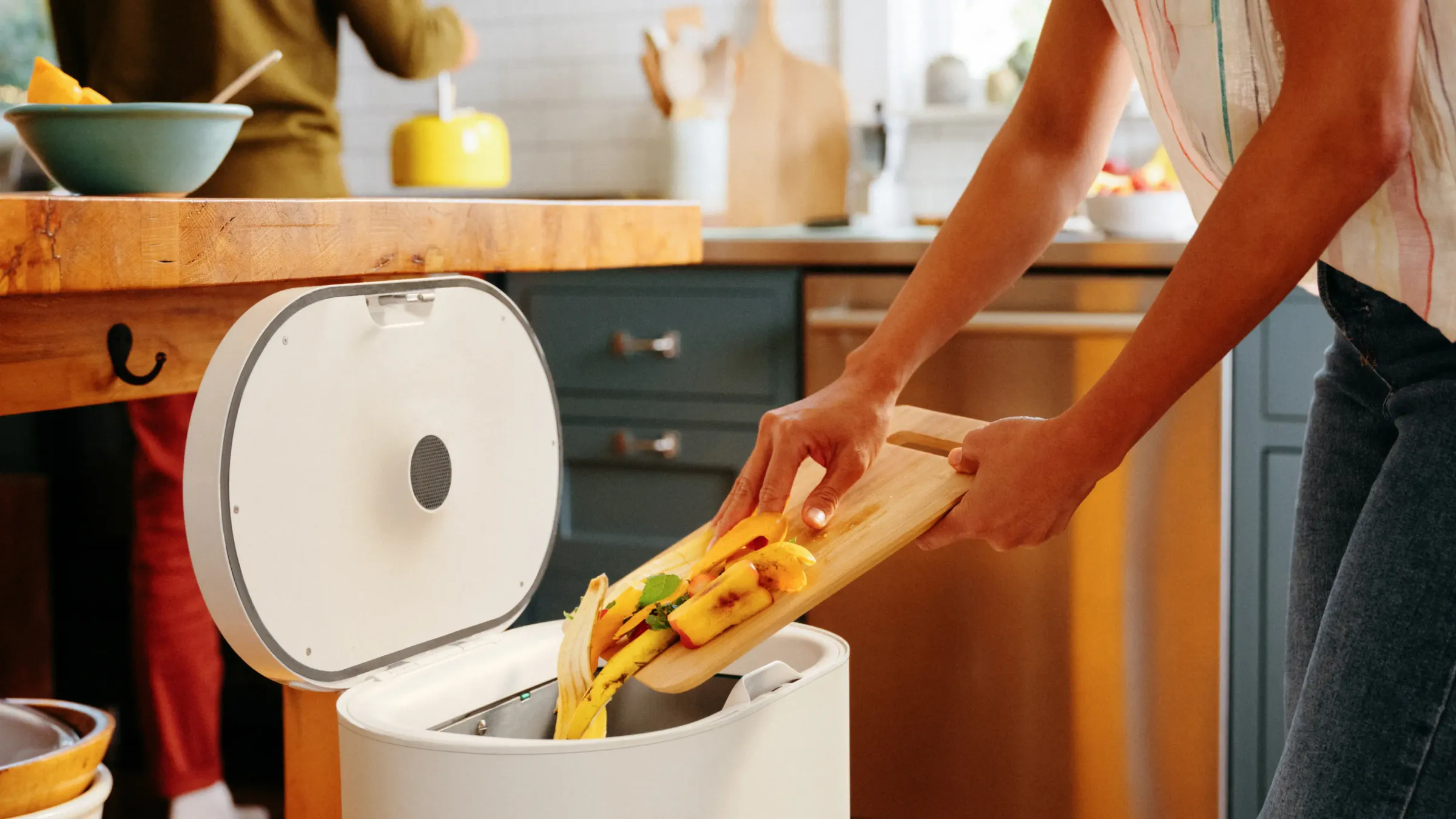Stel je een vuilnisbak voor die past bij de grootte van je gewone bak, maar die weken aan weggegooid voedsel negeert voordat hij zelfs maar aan volheid denkt. Je bent ervanaf, want er is geen behoefte aan handmatig werk; hij maalt, droogt en transformeert alles 's nachts moeiteloos.

De Mill Keukenafvalbak introduceert een concept dat technologie, design en milieubewustzijn combineert. Deze Wi-Fi-verbonden afvalbak is uitgerust met sensoren en een krachtige voedselsnijder. Terwijl het huishoudelijk voedselafval effectief omzet in "voedselafvalkorrels" die opnieuw kunnen worden gebruikt, gaat het een stap verder dan conventioneel composteren. In plaats van te composteren voor tuinen, streeft Mill ernaar dat gebruikers hun voedselafvalkorrels terugsturen om te worden omgezet in kippenvoer. De CEO, Matt Rogers, benadrukt het belang van het behouden van voedsel als voedsel, en erkent het grote probleem van voedselverspilling dat bijdraagt aan stortplaatsen en broeikasgasemissies.

Mill is een innovatieve oplossing, die een alternatief biedt voor traditioneel composteren, vooral voor mensen met beperkte ruimte of middelen.
De Mill-prullenbak biedt praktisch gebruiksgemak dankzij het gebruiksvriendelijke ontwerp. Hij functioneert net als een standaard keukenprullenbak, met het extra voordeel van eenvoud in het verwerken van voedselafval. De efficiëntie van het systeem ligt in het proces, waarbij voedsel wordt gemalen, gedroogd en omgezet in kippenvoer. Het bedrijf doorloopt regelgevingsprocessen om de veiligheid en kwaliteit van het voer te waarborgen. Het apparaat toont ook connectiviteit, met functies zoals meldingen via een smartphone-app, persoonlijke instellingen en automatische updates. Er zijn echter enkele operationele problemen ervaren, zoals vastlopers, wat de noodzaak van verdere verfijning benadrukt.

Mills benadering roept vragen op over het bredere afvalbeheersysteem. Hoewel het product het voedselafval van individuele huishoudens aanpakt, benadrukt het de noodzaak van uitgebreide gemeentelijke strategieën. Momenteel heeft slechts een klein percentage van de steden effectieve programma's voor het recyclen van voedselafval, waardoor lokale oplossingen essentieel zijn. Mills innovatieve inspanningen sluiten aan bij de drang naar duurzamere praktijken, hoewel de bredere impact uiteindelijk afhangt van systeemveranderingen en wijdverspreide adoptie.
Er zijn manieren om betere recyclers te worden. In een tijdperk waarin afhaalmaaltijden en maaltijdbezorging de norm zijn geworden, is het cruciaal om de recyclingnuances van de verpakkingen die bij je culinaire genot horen te begrijpen.



Comments (0)
Share your thoughts and join the technology debate!
No comments yet
Be the first to share your thoughts!